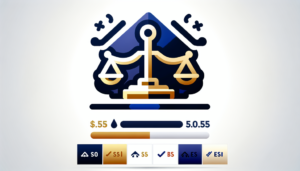When considering the purchase of a website, the goal is to ensure it is a profitable investment. This guide will provide you with essential tips to help you navigate the complexities of buying a website that can yield significant returns.
Purpose of Buying a Website
Before diving into the purchasing process, it’s crucial to define your objectives. Are you looking to:
- Generate passive income
- Build a portfolio of websites
- Flip websites for profit
Understanding your goals will shape your approach and the type of website you should consider.
Researching the Market and Options
Conduct thorough market research to identify niches that are currently trending or have potential for growth. Look for:
- High-demand niches – Areas with a consistent audience and monetization potential.
- Emerging trends – New markets that are gaining traction but have less competition.
Checking Website’s Performance
When assessing a website, consider the following key performance indicators (KPIs):
- Traffic – Analyze the website’s visitor statistics. Tools like Google Analytics can provide insights into traffic sources, user behavior, and trends over time.
- Revenue – Understand how the website generates income. Common monetization methods include:
- Affiliate marketing
- Ad revenue
- E-commerce sales
- Profit margins – Calculate the net profit by subtracting expenses from revenue. A higher profit margin indicates a more lucrative investment.
Conducting Due Diligence
Due diligence is critical in the website buying process. Here are essential steps to follow:
- Verify financials – Request documentation proving the website’s income, such as bank statements and tax returns. Ensure the figures are consistent and realistic.
- Check domain authority – Use tools like Moz or Ahrefs to assess the website’s domain authority and backlink profile. A strong domain authority can indicate a reputable site.
- Review content quality – Analyze the website’s content for relevance, engagement, and quality. High-quality content can drive traffic and improve SEO.
Checking Technical Aspects
Understanding the technical side of the website is vital:
- CMS familiarity – Ensure you are comfortable with the content management system (CMS) used by the website. Popular options include WordPress, Shopify, and Joomla.
- Website design and UX – Evaluate the website’s design and user experience. A well-designed site can enhance user engagement and conversions.
- Mobile responsiveness – Check if the website is mobile-friendly. With increasing mobile traffic, this is a crucial factor for success.
Identifying Growth Opportunities
Look for areas where the website can be improved or expanded:
- SEO optimization – Identify keywords that can be targeted to enhance organic traffic. Consider content gaps that can be filled to attract more visitors.
- Social media presence – Evaluate the website’s social media strategy. A strong social media presence can drive additional traffic and engagement.
- Monetization methods – Explore untapped revenue streams. For example, if the site relies solely on ad revenue, consider adding affiliate marketing or selling digital products.
Making an Offer
Once you have completed your research and due diligence, it’s time to make an offer:
- Determine a fair price – Use valuation methods such as the earnings multiple approach, which considers the website’s monthly earnings and applies a multiplier based on industry standards.
- Negotiate terms – Be prepared to negotiate the price and terms of the sale. Consider including contingencies based on the results of your due diligence.
Closing the Deal
After agreeing on terms, follow these steps to finalize the purchase:
- Use an escrow service – Protect both parties by using an escrow service to manage the funds during the transaction.
- Transfer ownership – Ensure all assets, including domain, hosting, and content, are transferred correctly.
- Post-purchase support – Discuss any support or training needed from the seller to ensure a smooth transition.
Popular Questions About Buying Profitable Websites
- What are the common mistakes to avoid when buying a website?
- How can I finance the purchase of a website?
- What legal considerations should I be aware of?
- How do I assess the competition in a niche?
- What are the best platforms for buying websites?
Common Mistakes to Avoid When Buying a Website
When venturing into the world of website purchasing, avoiding common pitfalls is crucial for ensuring a successful investment. Here are several mistakes that buyers often make:
- Neglecting Due Diligence – Failing to conduct thorough due diligence can lead to purchasing a website with hidden issues. Always verify the site’s traffic, revenue, and overall health before making an offer.
- Overvaluing Potential – Many buyers fall into the trap of overestimating a website’s potential based on superficial metrics. Look beyond the surface and evaluate the actual performance and growth capabilities.
- Ignoring Technical Aspects – Technical issues can severely impact a website’s performance. Ensure you understand the site’s CMS, hosting environment, and any potential technical debt that may require attention.
- Disregarding Content Quality – Content is king in the online world. Buying a website with poor-quality content can hinder your ability to attract and retain visitors. Always assess the content for relevance and engagement.
- Underestimating Ongoing Costs – New website owners often overlook ongoing operational costs. Consider expenses such as hosting, maintenance, marketing, and content creation when evaluating profitability.
- Failing to Plan for Transition – Transitioning ownership can be challenging. Ensure you have a clear plan for managing the website post-purchase, including any necessary training or support from the seller.
- Skipping Legal Considerations – Legal issues can arise if proper precautions are not taken. Consult with a legal professional to ensure all contracts and agreements are in order before finalizing the purchase.
By being aware of these common mistakes, you can approach your website purchase with greater confidence and increase your chances of success.
How to Finance the Purchase of a Website
Financing a website purchase can be a significant hurdle for many buyers. Here are several strategies to consider:
- Personal Savings – Using personal savings is the most straightforward method. It eliminates debt and interest payments, allowing you to retain full ownership from the start.
- Loans – Consider applying for a personal loan or a small business loan. Ensure you have a solid business plan and financial projections to present to potential lenders.
- Seller Financing – Some sellers may be open to financing the sale themselves. This arrangement allows you to pay a portion upfront and the remainder over time, often with interest.
- Investors – If you have a solid plan for the website, consider bringing in investors who can provide capital in exchange for a share of the profits.
- Crowdfunding – Platforms like Kickstarter or Indiegogo can be used to raise funds for your website purchase. This method requires a compelling pitch to attract backers.
- Partnerships – Teaming up with a partner can help share the financial burden. Ensure both parties have clear roles and responsibilities to avoid conflicts.
By exploring these financing options, you can find a solution that aligns with your financial situation and investment goals.
Legal Considerations When Buying a Website
When purchasing a website, understanding the legal landscape is essential to avoid potential pitfalls. Here are key legal considerations to keep in mind:
- Ownership Transfer – Ensure that the seller has the legal right to sell the website. Verify that all assets, including the domain, hosting, and content, are included in the sale.
- Contracts – Draft a purchase agreement outlining the terms of the sale. This document should detail the purchase price, payment terms, and any contingencies.
- Intellectual Property Rights – Confirm that the website’s content does not infringe on any copyrights or trademarks. Ensure that you have the right to use all content, images, and branding associated with the site.
- Privacy Policies – Review the website’s privacy policy to ensure compliance with data protection regulations. This is especially important if the site collects user data.
- Liabilities – Understand any potential liabilities associated with the website. This includes outstanding debts, legal issues, or unresolved disputes that could impact your ownership.
- Non-Compete Agreements – Consider including a non-compete clause in the purchase agreement to prevent the seller from starting a similar website that could compete with your new investment.
Navigating these legal considerations will help ensure a smooth transaction and protect your investment in the long run.
Assessing Competition in a Niche
Understanding the competitive landscape is crucial when buying a website. Here are steps to effectively assess competition:
- Identify Competitors – Conduct research to identify direct competitors within the niche. Use search engines and tools like SEMrush or Ahrefs to find similar websites.
- Analyze Traffic – Evaluate the traffic levels of competitor websites. Tools like SimilarWeb can provide insights into visitor numbers and sources.
- Review Content Strategies – Analyze the content strategies of competitors. Look for gaps in their content that you can exploit to differentiate your website.
- Examine SEO Performance – Assess the SEO performance of competitors. Identify the keywords they rank for and their backlink profiles to understand their strengths and weaknesses.
- Monitor Social Media Presence – Review competitors’ social media engagement. A strong social media presence can indicate a loyal audience and effective marketing strategies.
By thoroughly assessing competition, you can develop strategies to position your website for success in the market.
Best Platforms for Buying Websites
When looking to purchase a website, choosing the right platform can significantly impact your experience. Here are some of the best platforms to consider:
- Flippa – A popular marketplace for buying and selling websites, Flippa offers a wide range of listings, from small blogs to established e-commerce sites.
- Empire Flippers – This platform specializes in higher-value websites and provides a vetting process to ensure quality listings. They also offer assistance with the buying process.
- FE International – Known for premium website listings, FE International focuses on established online businesses and offers comprehensive support throughout the transaction.
- Website Broker – This site connects buyers with sellers and provides a range of services, including valuation and due diligence assistance.
- MicroAcquire – A platform designed for startups and small businesses, MicroAcquire allows entrepreneurs to buy and sell websites without the hassle of traditional marketplaces.
By exploring these platforms, you can find the right website that aligns with your investment goals and preferences.




